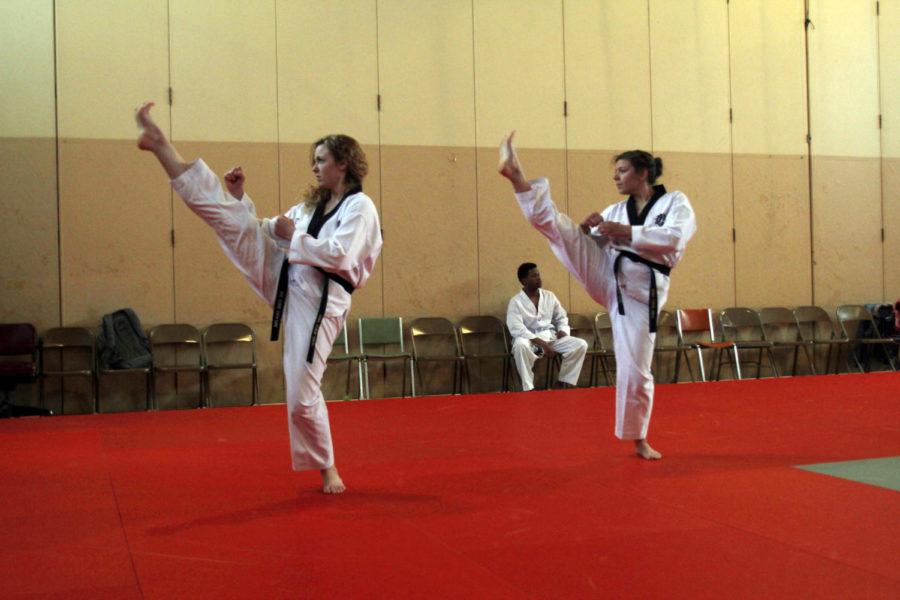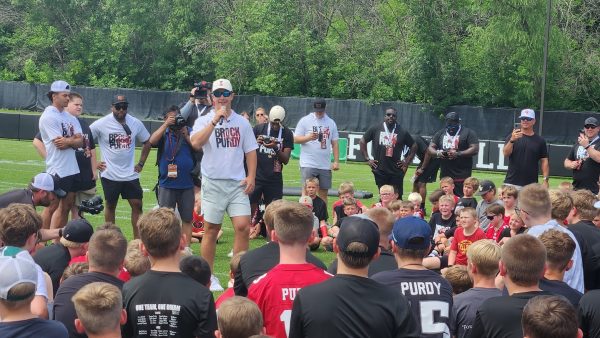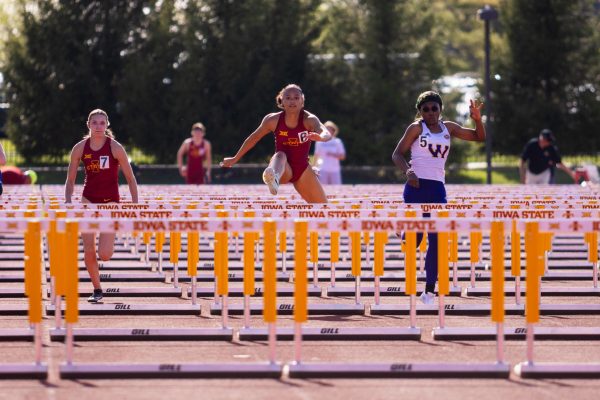Training for success: Martial Arts Club teaches students helpful life skills
Kyle Schlichting/Iowa State Daily
Emma Dostal and Molly Conway practice Taegeuk 8 during his Taekwondo practice on April 14. The Taekwondo team was practicing at Forker Hall after recently competing in the National Collegiate Taekwondo Championship from April 4-6.
April 17, 2014
When he stepped on to the mat to compete in the National Tae Kwon Do Collegiate Association Championships, Sullivan Boyd was not expecting to win.
The green belt said he was soon surprised when he finished first in sparring at his skill level. Boyd was one of six members of the ISU Martial Arts Club to place and earn a medal at nationals, which was held from April 4-6 in Berkeley, Calif.
The club practiced more than 10 hours each week to prepare for a strong showing in the tournament. However, during these training sessions, the tae kwon do students were being taught more than just how to win a match.
“I want to make sure that they understand that anything is possible, and if they don’t try, they will never know,” said Master Matthew Hamann. “When they take themselves out of their comfort zone and try, it is going get them a lot further in the competition as well as in life.”
Hamann became head teacher of the martial arts club, which also includes judo and hapkido, about a year ago after Grand Master Yong Chin Pak retired. For the past 21 years, Hamann has been studying tae kwon do — with more than six of those years training under Pak — and has achieved a fifth-degree black belt rank.
The style Hamann teaches at Iowa State is traditional and focuses on self-defense and cultural ideals. This differs from many other schools around the nation that have a more modern style, which emphasizes competition.
Hamann prefers the traditional style because it gives his pupils the skills to be successful in everyday life. He said it will help them learn good morals and discipline, which they can apply to schoolwork and future careers.
“They can get as many gold medals as they want, but how is that going to help them be successful?” Hamann said. “Really, what I am aiming for is making sure all the students that come to judo, hapkido or tae kwon do become better people and are successful.”
Teaching this type of tae kwon do has its challenges. To participate in tournaments, the club has to use the modern style, so each member on the national team has to study both forms of the martial art.
“When we are in regular class, we have to do traditional style,” said Molly Conway, president of the tae kwon do section of the club. “Then, right after that club practice, we have our nationals practices, which are standardized to the way everyone else competes. So, you kind of have to switch a switch.”
Boyd said the lessons Hamann is passing down to the club members has helped him grow as a person.
“[Joining the Marital Arts Club] has been a really positive experience,” Boyd said. “I have been getting to know myself better and learning how to interact with a variety of different people.”
And this personal growth is exactly what Hamann is hoping his students experience while they are members of the club.
“I want my students to come back and say they are successful people,” Hamann said.

















